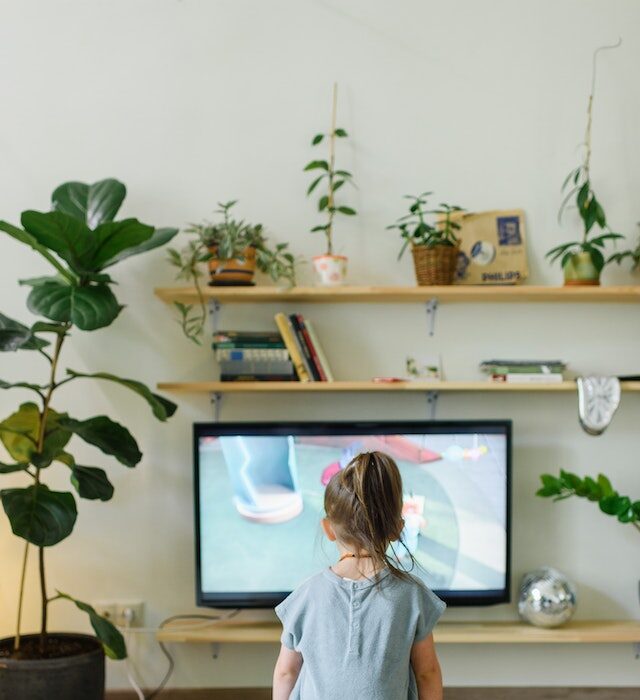Controlling your kids’ screen time? Are you often battling over iPads, cellphones, and video games? Not alone. In this digital age, parents must balance letting their kids use technology and preventing screen addiction. Fear not! We’ve got the definitive parenting guide on screen time control. Find the right way to engage your kids while fostering healthy growth and family bonding. Let’s discover how to master screen time management!
How much screen time can kids handle?
Parents naturally ask how much screen time is too much for their kids. Experts suggest age- and need-based limitations.The American Academy of Paediatrics recommends one hour of high-quality programming each day for toddlers and preschoolers (2-5). Educational childrens tv shows that teach language, problem-solving, and social skills are examples.
Older kids (6-18) have more leeway. Balance screen time with exercise, homework, family time, and hobbies. Experts recommend limiting recreational screen use to two hours per day and encouraging offline activities.These suggestions are only suggestions. Screen boundaries must take into account each child’s needs and priorities.Moderation matters. Screen time can harm children’s sleep, mental health, academic achievement, and social connections. So balance is crucial for their development.
Staying on top of your child’s screen usage by monitoring their patterns and using parental control applications if needed. Open discussion regarding safe technology use helps develop healthy habits early on.We want our kids to have a healthy relationship with technology, navigating both online and offline realms while prioritising real-life experiences.
Too much screen time on kids
Parents increasingly worry about excessive screen time. Smartphones, tablets, and other devices have increased children’s screen time. How does constant screen exposure affect their development?
Screen time can harm kids’ health. Sedentary behaviour increases the risk of obesity and related health issues. Screens disturb sleep habits, making it harder for kids to get enough sleep.
Screen time also hinders social and emotional development. Screen-addicted kids may have trouble socialising and recognising nonverbal cues. Missing face-to-face interactions may hinder language development.
Screen time also impairs cognition. Overexposure to some media may impair attention and concentration, according to research. Parents must monitor the content their children consume.
Today’s technology is important, but parents must set screen time limits for their kids. Encouraging outside recreation, meaningful family activities, and balanced media intake can reduce the risks of excessive screen use. Early screen management will help your youngster develop healthy habits!
Limiting kids’ screen time
Today’s parents struggle to regulate their kids’ screen time. Technology is becoming more accessible and seductive, making it hard to establish the perfect balance between screen time and other activities for your child.Some ways to reduce your kids’ screen time:
1. Set clear rules: Limit screen time for your child. Make sure everyone in the household respects these guidelines for consistency.
2. Establish tech-free zones: Forbid screens in specific places or times. Tech-free zones before meals or bedtime might encourage family bonding and reading.
3. Offer screen-free activities including outdoor play, art projects, board games, sports, and music classes. You’ll assist your child learn new things by providing intriguing alternatives to screens.
4. Model good screen habits: Children generally imitate their parents, so adults should lead by example. Use technology responsibly.
5. Use parental control tools: Use device parental controls or download apps to limit app usage and monitor activity.
Limiting screen time doesn’t mean eliminating it, but finding a healthy balance that supports your child’s development and well-being.
Choose brain-building TV for your kids.
Consider brain development when choosing kids’ childrens tv shows. Choosing a show for your kids might be difficult with so many alternatives. There are signs a programme is brain-development-focused.
Choose interactive shows. Find programmes with quizzes or problem-solving challenges. These exercises boost cognition and critical thinking.Find intriguing educational shows. Educational programmes can educate science and math while entertaining your child.Use age-appropriate words and images. Choose programmes with simple language and clear graphics for your child’s age. This helps them understand and follow the information.
Watch the show’s pacing. Avoid fast-paced shows that may overstimulate kids. Instead, choose slow-paced shows that let kids assimilate information.Tell good stories! Well-developed characters and interesting tales keep kids’ attention and build imagination and empathy.
You can give your kids fun and educational screen time by choosing TV shows with interactive elements, educational content, age-appropriate language/visuals, appropriate pacing, and quality storytelling.
5 fun screen-free activities for kids.
In a world of screens and technology, parents must limit their children’s screen time. Too much screen time can harm kids. How do we restrict screen time? Let’s talk practicality!First, let’s define excessive screen time for kids. For toddlers 2-5 years old, the American Academy of Paediatrics recommends one hour each day, while parents should set limitations for children above 6.
Screen time can cause obesity, sleep disruptions, behavioural challenges, and delayed social skills development. It’s important to balance tech use with physical and mental health activities.How can we limit our kids’ screen time? Some ideas:
1. Set clear boundaries: Limit screen time to a set time each day. Limit enforcement requires consistency.
2. Designate screen-free zones: For example, bedrooms and mealtime locations. This promotes familial bonding.
3. Encourage non-screen activities: Read books, play board games, or play outside with your child.
4. Model behaviour: Children often imitate adults. Reduce your screen time with your kids to show them the benefits of non-screen activities.
5. Choose brain-stimulating programmes: If you allow TV or digital content for educational purposes, choose high-quality programming that fosters learning and critical thinking rather than mindless amusement.
Now let’s talk about entertaining things you can do with your kids instead of watching TV.





